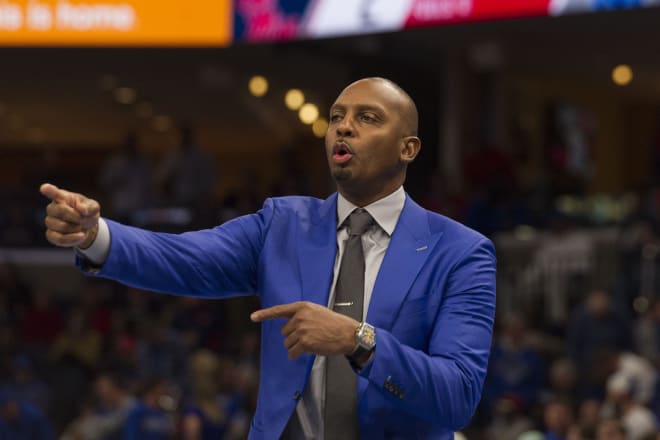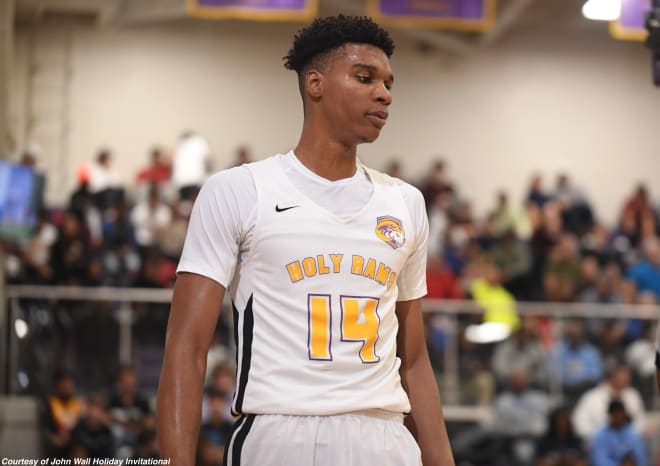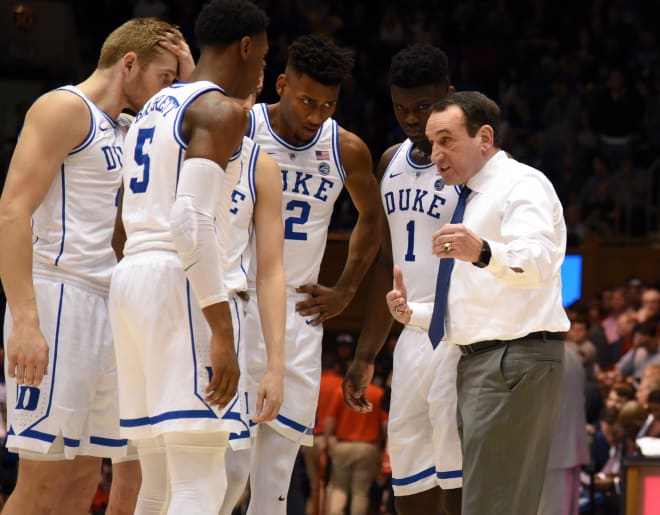Rivals Roundtable: The aftershocks of Green's decision

On Thursday, 2020's No. 2 ranked player Jalen Green announced that he is signing with an agent and skipping college for the NBA's G League. Earlier this week, five-star Isaiah Todd said he's getting an agent and skipping college as well. In a special edition of the Rivals Roundtable, analysts Eric Bossi, Corey Evans and Dan McDonald discuss the week's happenings and potential long term impact.
1. Which program will be stung the most by Jalen Green's decision to skip college basketball? Do they have any options left?

Bossi: That's actually a pretty tough question to answer. If we are looking at rosters and how they are constructed for next season, one could argue that Green actually filled a bigger need for Bruce Pearl and Auburn. But, given that Penny Hardaway and Memphis have pursued Green so heavily and so publicly for so long makes it a tougher blow for them. I've written before that I'm still sold on Penny proving the naysayers wrong and getting Memphis over the hump after 2019-20 didn't go as expected. But, losing out on a potential college superstar isn't exactly helpful.
Evans: Memphis. I said all along that I felt that Green was headed to Memphis until finding out that the G-League was not just an option but a strong likelihood for what Green would choose. Sure, it would have been an awesome story if he would have stayed home and picked Fresno State. Auburn would have loved to have had him. With the James Wiseman fiasco now behind them, the Tigers could have quickly forgotten about all that took place last season and begun to gain greater appreciation for what having a transcendent talent like Green in the fold could mean for next season.
Not that they have a shortage of talent returning. Their backcourt features scorers like Boogie Ellis, Damion Baugh, Tyler Harris and Lester Quinones, but it would be a nice bounce back if five-star Greg Brown were to pick Memphis next week compared to all others. Texas is the school to beat but discourse between the Tigers and Brown has remained a constant.
McDonald: I’d lean towards Auburn here. With Samir Doughty and J’Von McCormick gone, Auburn has two pretty big holes to fill in their backcourt. McCormick’s spot has been filled by five-star guard Sharife Cooper and it would have been perfect for the Tigers to get his close friend Jalen Green to play alongside him in Doughty’s spot.
2. We've seen guys skip school to go overseas, but now that the NBA/G League appears to be getting serious about chasing high school talent and offering good money, how viable a path do you see the G League being?

Bossi: While $125,00 is a lot of money, it wasn't enough to move the needle and get truly elite players to skip college for the G League. If they are really willing to go up to $500,000, well that's a game-changer. Todd hasn't announced what his intentions for next year are just yet. But, many NBA sources feel he's most likely on the G League path.
That path is still a consideration for five-star point guard Jalen Suggs and some others in 2020. The more I hear from NBA personnel, I'm hearing that they are not interested in drafting players straight out of high school. But, they don't really like scouting them overseas either. Adding a few more dollars for a few more kids each year could be a good compromise for them and there's no doubt in my mind more upper echelon prospects than ever will be receptive to the G League route.
Evans: With $500,000 contracts now being an option, this is not just a one-time occurrence but rather an avenue that I foresee being a likely road the elite take every spring. Until now, it was believed that $125,000 was the most that the G-League could offer.
With less enticing host cities, unstable development paths and lack of interest in the product, it just wasn’t worth the risk for the nation’s best to choose over college. However, with this type of money and maybe a more concise plan for how the league will go about marketing and also developing talent, we might see more prospects gravitate towards skipping college.
This is the NBA’s way of responding to the NBL and other overseas options. If top domestic talent does not want to go to college, the NBA/G League will do what it can to keep them local.
McDonald: As Corey and Eric mentioned, at the past number of $125,000, it doesn’t seem like an appealing option for a prospect who can go to a blueblood and grow his brand playing on ESPN all year while being treated like a rock star on a college campus. That salary isn’t that much for prospects who will be making millions the next year, especially when you consider the competition level in the G-League is really good and those guys are hungry to get their shot in the NBA. At $500,000 or more for elite prospects, it becomes something the top tier has to at least consider.
3. Do college programs need to be re-evaluating the way they chase top ranked prospects?

Bossi: I have been saying for a while that I don't know if relying on one-and-done talent to the extent that some programs -- particularly Duke and Kentucky -- have is a viable way of sustaining success. Duke won a National Championship in 2015, but hasn't won an ACC regular season title since 2010 (It also won a national title year).
It's not because Mike Krzyzewski isn't a great coach. We all know he's maybe the greatest of all time in college. It is because the ACC is a great league and it's hard to replace a team's core with freshmen each year and expect to win a league or the National Championship. Whether the NBA opens up the draft in a few years or not, we are seeing that more kids each year are finding alternative routes to the money.
There needs to be more focus than ever on dudes who are likely going to need a few years in college. Better to get ahead of it now than have to deal with a year or two dropoff when even more prep stars go professional.
Evans: No doubt about that. This is the new reality for the sport. Just as the one-and-done approach changed the industry at the beginning of the last decade, the same can be said for this new initiative set forth by the G-League. How the bluebloods react is one thing, but it will also create for a trickle-down effect that will hit the traditional high-major level and so forth.
Maybe the bluebloods sniff out the ones that don’t have an interest in attending college, which in turn might take away the prospects that would usually attend the lesser high majors. No program is safe and the ones that are more proactive in offsetting this change are the ones that will flourish.
McDonald: Absolutely. Between the professional route becoming an intriguing option and the potential for a one-time transfer rule going through, college coaches not only need to evaluate the talent level of a prospect but need to be equally thorough in finding out the intangibles with a prospect. I suspect schools will start to value prospects who didn’t switch high schools multiple times and didn’t flip travel teams multiple times.